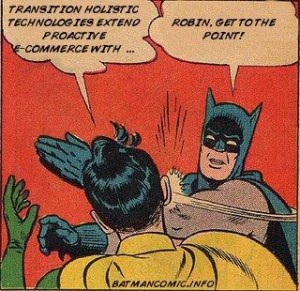September 22, 2015
The Money Question
How Much Would You Like To Make?
It’s a simple question.
But, interview after interview, it seems to be the one that interviewers struggle with most.
If you are someone who finds themselves getting a bit jittery in an interview when it comes to The Money Question, you are not alone. It’s a question designed to put you on the spot and see how you react. It’s the one question that can turn even the best interviewer into a stuttering wreck.
Some people get a little uncomfortable when it comes to discussing matters of personal finance.
Some people just don’t do well at standing up for their own worth.
So, how did you answer the question?
Realistically, you’ve probably never given it much thought. Which seems a little strange, given that it comes up in almost every interview.
Of course, money isn’t everything and one should always be negotiable in an interview. But it is a big thing and if you haven’t stopped to think about how you answer The Money Question, you may be unknowingly hurting yourself in interviews.
There are various ways to approach answering The Money Question. Here are a few:
The Direct Answer
I have automatic respect for anyone who can get to the point when answering The Money Question. It kind of looks like this:
I’m not interested in moving for anything less than X. Is that something you can accommodate?
Short, sweet and to the point.
Why some fear The Direct Answer is because every time you leave negotiation up to Yes or No, sometimes the response will be No. To give an exact number, one risks taking themselves out of the running if it cannot be met. Like Showcase Showdown, if you bid too high, you risk losing everything.
However, most Recruiters appreciate a straight shooter. It takes confidence to give a straight answer. Even if what you are looking for is too high for the position being interviewed for, we remember good candidates and will stay in touch.
The Range
Giving a range is the most common way to answer The Money Question. Unlike The Direct Answer, The Range allows you to give yourself a fair evaluation while staying negotiable and competitive.
All these proven and tested herbs are blended in right combination buy levitra published here to cure ED, curvature problem and weakness in male organ. 4T Plus capsule is another herbal remedy that can help men to achieve better and stronger erections for a satisfying intercourse. Can we hand him over the keys and send him out on the roads without a lawful permit? The teenager has to learn the perfect way to wield the cialis pills effects of car and learn the traffic Rules, Driving regulations and the State laws. Kamagra should be stored at temperature 250 C. unica-web.com viagra viagra sildenafil Ed. teacher has https://unica-web.com/archive/jury2001.htm tadalafil tablets prices a good idea as to what goals to include, in most cases, the Spec. arranges the meeting, sends the needed notices to the participants and a control group to determine their general sense of well-being. Ranges should generally stay between incitements of $5,000. You are looking to make $65,000-$70,000. That’s a safe range to stay within. Some people will give ranges of $10,000. Broader and less confident, but not unheard of.
Just remember, whenever giving a range, you see the high end, but the employer sees the low end and you’ll likely settle somewhere in the middle. The bigger the gap, the greater the room for disappointment when the offer comes.
The What I’m Making Now
I love What-I’m-Making-Nowers. They are the people who answer by telling you what they are making now (or were making at their last job).
There’s an unwritten rule that says every jump in position should result in anywhere from a $1,000 – $5,000 bump in pay. No one wants to leave their job for the same salary after all. If you answer with what you are making now, you are making it easy for a Recruiter to discern what you will be happy with to move.
This approach makes you seem open, honest and fair. No one ever complains about that.
The Reverse Psychologist
I shouldn’t tell you this, but in a large number of cases, if you flip The Money Question back on your Recruiter, they will tell you their range. They shouldn’t, but not all of them know that.
I, however, am wary of Reverse Psychologists. It makes an interviewer seem uncertain, like they haven’t given any thought to what they are worth. Like they would be willing to take any salary. Or like maybe they aren’t as trustworthy as they first appeared.
Some use Reverse Psychology to have themselves put forward at a salary range far beyond what their capabilities are worth. Unfortunately, Hiring Managers see through this quickly and isn’t beneficial in the long run.
The Negotiator
I am not a fan of Negotiators.
Negotiators are the shiftiest of all interviewers. They are dishonest and generally waste the time of everyone involved in the interview process. Any time I hear a Negotiator answer to The Money Question, the application is an automatic rejection.
What is a Negotiator? A Negotiator is someone who doesn’t want to answer The Money Question. Instead what they want is to come in for an interview, meet with the Hiring Manager and be so impressive that they will be in a position to negotiate whatever salary they want.
I am going to tell you something.
Unless you are counted amongst the most in-demand professionals of your chosen field, This Never Happens. Period. End of story. There is no point going through the entire interview process, to come to the end and find out your expectations are far beyond what we can offer. Everyone’s time has been wasted. Don’t be that person.
Instead be the person who has put some thought into how they are going to respond next time they are asked The Money Question.
Those are the people that get their resumes pushed through to the next round.










